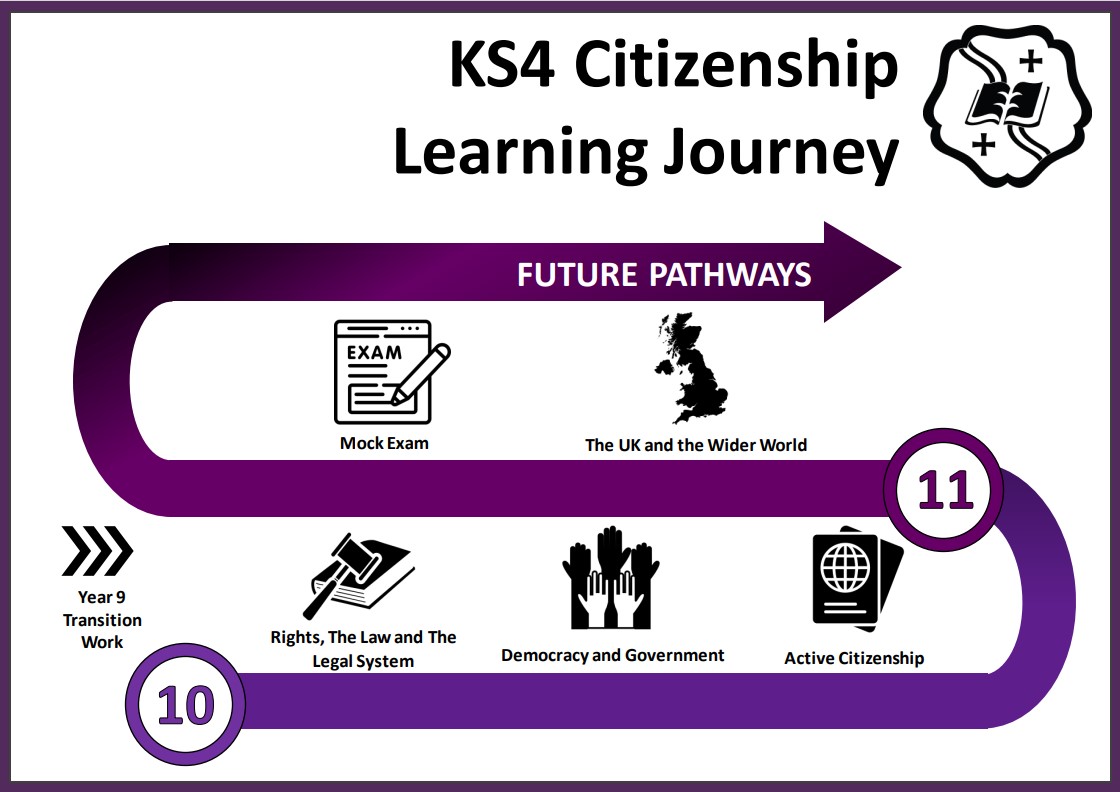Citizenship Studies is taught within the EPD curriculum content at KS3. Students are encouraged to pay attention to local, national and international events and learn a range of topics; from understanding the complexities of a diverse United Kingdom, to how to play an active role as a citizen within our democratic society.
Cn-56• British value
• Multicultural societ
• Migration trends and patterns
• Democracy and governmen
• Methods of participation in a democratic society
Active Citizenship
• Rights and responsibilities with a focus on key human rights such as ‘Freedom of Speech’
• The role of media in UK society
Studying GCSE Citizenship enables learners to understand and appreciate their rights and responsibilities at home, in school and as young citizens in their wider community. Students will learn more about the benefits and challenges of living in a modern, culturally diverse, tolerant and democratic society while, at the same time, developing a growing understanding of people’s interdependence locally and globally. As students develop their knowledge and understanding of the United Kingdom’s role in an increasingly complex world, students will be given the opportunity to analyse and evaluate some of the most significant political issues of our time.
Exam Board: OCR
Qualification Title: Citizenship
Qualification Specification Code: J270
Qualification Webpage: Click here to visit the OCR webpage for the specification.
Citizenship Studies links to a range of different subject areas such as History, Geography, Politics, Economics and Sociology. It therefore offers students the chance to broaden their general knowledge and become more aware of significant world events and issues. Citizenship is also the perfect vehicle for developing a variety of skills, ranging from leadership, teamwork, research, literacy, advocacy and debate. Students can develop the skills necessary to be an active, knowledgeable and considerate participant in their society.
Skills and knowledge that you will need, or that you will be required to develop, include: - A genuine interest in keeping up-to-date with local, national and international news. - An in-depth understanding of how the UK works politically, socially and economically. - Critical thinking, analysis, teamwork and leadership skills.

Assessment takes place over three papers at the end of the GCSE Course:
Paper 1: Citizenship in perspective
Multiple choice questions
50 minutes
25% of the final GCSE grade
Paper 2: Citizenship in action
Written answers
1 hour 45 minutes
50% of the final GCSE grade
Paper 3: Our rights, our society, our world
Written answers
1 hour
25% of the final GCSE grade
Citizenship encourages learners to make positive contributions to their school, college and wider community through links with senior school/college leaders and representatives of: community organisations; political parties; pressure groups; charities; the police; legal services and the media. Citizenship Studies would therefore complement pathways into many different job sectors.
Mrs Andre
Owned by: MDS | Last Published: 20/09/2019 09:53:36 | Next Update: N/A